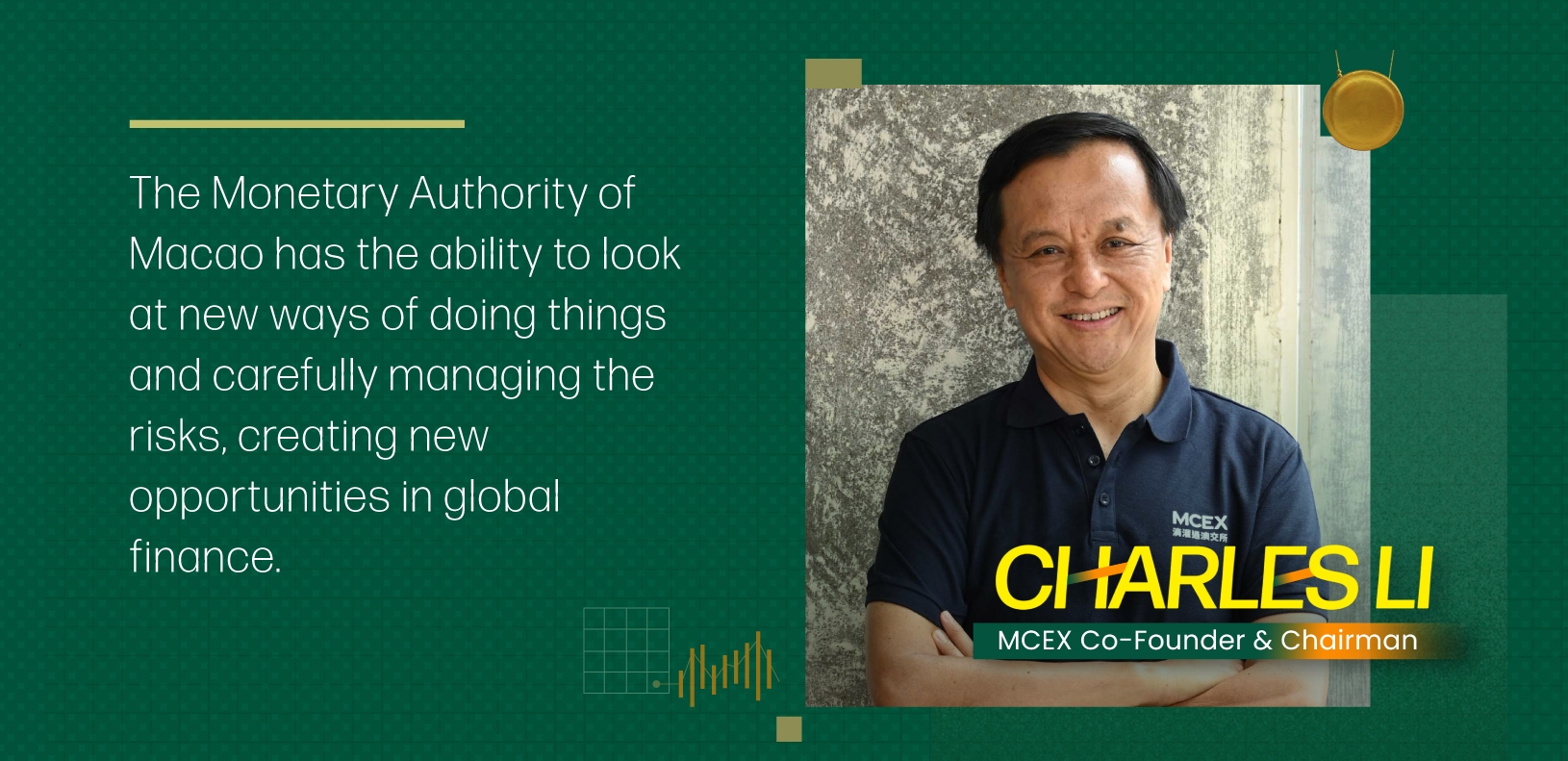How Big Ideas Fuel Financial Innovation in Macao
Macao is at the forefront of a potential revolution in financial investment underpinned by forward thinking and strong government support.
It’s March 2023 and hundreds of bankers, investors, and financial decision-makers are gathered in one of Macao’s glitzy convention centers, ready to celebrate the launch of a new exchange for revenue-based financing.
Cameras flash as Macao’s senior Government leaders take to the stage alongside the founders of Micro Connect, the company behind the new concept. The ribbon is cut, the ceremonial gong is rung, and the attendees buzz with excitement about what the launch means for them and Macao.
“It was like a big inaugural party,” says Micro Connect Founder and Chairman, Charles Li. “It was the beginning of a new type of exchange addressing a completely new asset class aimed at helping a new group of real economy players who never had access to traditional services.”

This was the launch of Micro Connect Macao Financial Assets Exchange (MCEX), the first licensed global exchange for Revenue-Based Obligations (RBO), a new asset class that connects institutional capital around the world with micro and small businesses.
Rather than having a Wall Street model of stock exchange, where only a limited number of listed companies are available for investing, MCEX allows institutional investors to invest in RBOs. The principle is that SMEs are listed on MCEX along with transparent information about their cash flows.
In exchange for investment, thereby providing the SMEs with much-needed funds, investors are promised a percentage of the SMEs’ revenue. The collection and distribution of these cash flows from businesses to investors are facilitated by MCEX, and these cash flows are securitized into products that are listed and traded on the exchange,

While it took some investors and regulators time to understand the concept, the idea resonated well in Macao because of the way the Government already taxes casinos, by taking a fixed percentage of their revenue every day.
“MCEX is a natural extension of traditional financial logic made possible with the availability of new technology,” says Li. “The Wall Street model of investing involves a lot of costs with regard to data integrity, but we shouldn’t rely on old practices to dictate how a new market should operate. With a completely new perspective and approach, we can solve problems that until today have not been successfully resolved.”
A New Way to Invest in Small Companies With Great Potential
In the interest of diversifying Macao’s economy away from gaming, the Government is seeking to develop “1+4 industries” it has identified as having significant growth potential, one of which being modern financial services.
The plan aims to leverage Macao’s advantages as part of the One Country Two Systems arrangement, its open financial system, and its links to Portuguese-speaking countries, acting as a bridge between internal and external markets, complementing other regional finance hubs rather than replacing them.

As a result, Macao has already introduced a range of policies deepening financial ties between Macao and the mainland and is encouraging Macao-based financial institutions to expand. It is also keen to introduce businesses and platforms offering “non-standard” financial products, MCEX being one example.
“I don’t think other regulators would be able to quickly understand what we do and be comfortable with it,” says Li. “The Monetary Authority of Macao has the ability to look at new ways of doing things and carefully managing the risks, creating new opportunities in global finance.”
Another recent example is the A&P Macau Patacas Money Market Fund, Macao’s first locally registered open investment fund solely denominated in Patacas, which launched in July 2024. This private fund offers locals the opportunity to invest using local currency and get attractive rates of return without needing to convert their funds into Hong Kong dollars or other currencies.

Although still early days, A&P Investment Fund Management Company Limited, the company behind the fund, has plans to expand beyond Macao by introducing more tools and products for customers in Hong Kong, Mainland China, Singapore, Portugal, and potentially other Portuguese-speaking countries.
Innovation and Opportunity Underpinned by Government Support
The Government of Macao plans to support these and other financial platforms by incentivizing greater connectivity with Mainland China and international markets. This will be supported by the introduction of new laws and regulations, such as the recent “Financial System Act” which clarifies how qualified organizations can implement new fintech trial projects and manage risks.
These efforts are already showing results. In December 2023, Macau Pass, the city’s e-wallet payment service, expanded the number of e-wallets it can make payments to and receive payments from. These include Tinaba (Italy), OCBC and Changi Pay (Singapore), MyPB by Public Bank (Malaysia), Toss Pay and NAVER Pay (South Korea) and Hipay (Mongolia). As a result, Macao-based merchants can easily receive payments from international visitors, and users of the Macau Pass can increasingly use their accounts abroad. AGTech, the company behind Macau Pass, hopes to make its service available in more than 40 countries by the end of 2024.
“Macao is innovating its financial sector without relying on old systems and rules,” says Li. “This means there’s little incumbent burden constraining thinking, allowing Macao to look at the digital revolution with a new perspective on what can be done differently.”
“If we can create a financial market that is globally relevant, businesses from around the world will come to Macao and use its innovative structure. This presents a blue ocean of opportunities for businesses worldwide, and will position Macao as a new, alternative, financial center.”
